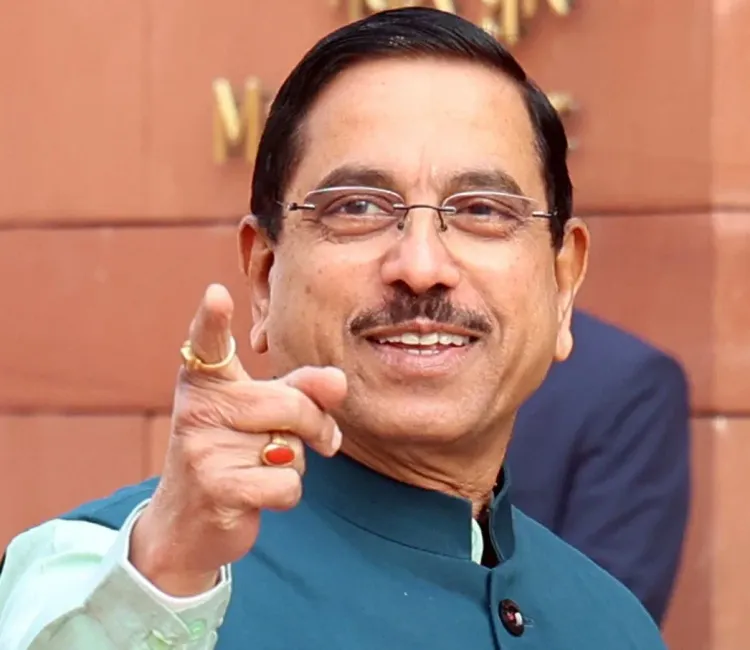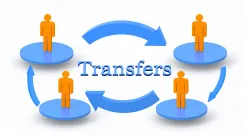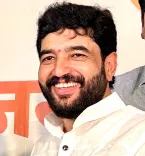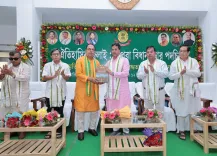Are GST Notices to Small Traders Really from the Centre?

Synopsis
Key Takeaways
- Karnataka's state government is responsible for issuing GST notices to small traders.
- Union Minister Pralhad Joshi has publicly criticized the state government for misleading the public.
- GST comprises two components: CGST and SGST.
- The government is accused of harming the growth of digital transactions.
- Collaboration between state and central governments is crucial for supporting local businesses.
Bengaluru, July 22 (NationPress) Union Minister for Food, Public Distribution and Consumer Affairs Pralhad Joshi has made it clear that the GST notices directed at small-scale traders in Karnataka originate from the state government, not the Central government.
In response to Deputy Chief Minister D.K. Shivakumar’s assertion that the state plays no role in the issuance of tax notices, Joshi labeled the claim as “utterly ridiculous.”
“It is the officials from Karnataka’s commercial tax department who have issued the GST dues notices to small traders. Yet, the state government is misleading the public by pretending it has no responsibility. This is merely an attempt to avoid accountability,” Joshi stated.
“If these GST notices had come from the central government, then traders from various other states would have received them as well. However, that is not the case. Why are these notices exclusively sent out in Karnataka?” Joshi pressed.
Joshi also accused the Karnataka government of burdening the citizens through price increases and now harassing small traders engaged in essential goods like fruits, milk, and vegetables by sending tax notices.
He clarified that under the GST system, there are two components - CGST (Central GST) managed by the central government and SGST (State GST) managed by state governments. The notices sent to small traders in Karnataka were from the state's Commercial Tax Department.
“The central government has no involvement in this matter,” Joshi affirmed.
He further explained that within the GST Council, decisions are made collectively, where the Central government holds only one-third of the voting power, with the states possessing the remaining two-thirds, allowing them final say in most decisions.
By sending GST notices to small traders, Joshi claimed, the Karnataka government is actively trying to undermine the growth of digital and UPI transactions in the state.
“UPI transactions have become a global model. However, the Karnataka government is attempting to disrupt this transparent system. This petty political maneuvering is truly unfortunate,” he concluded.






